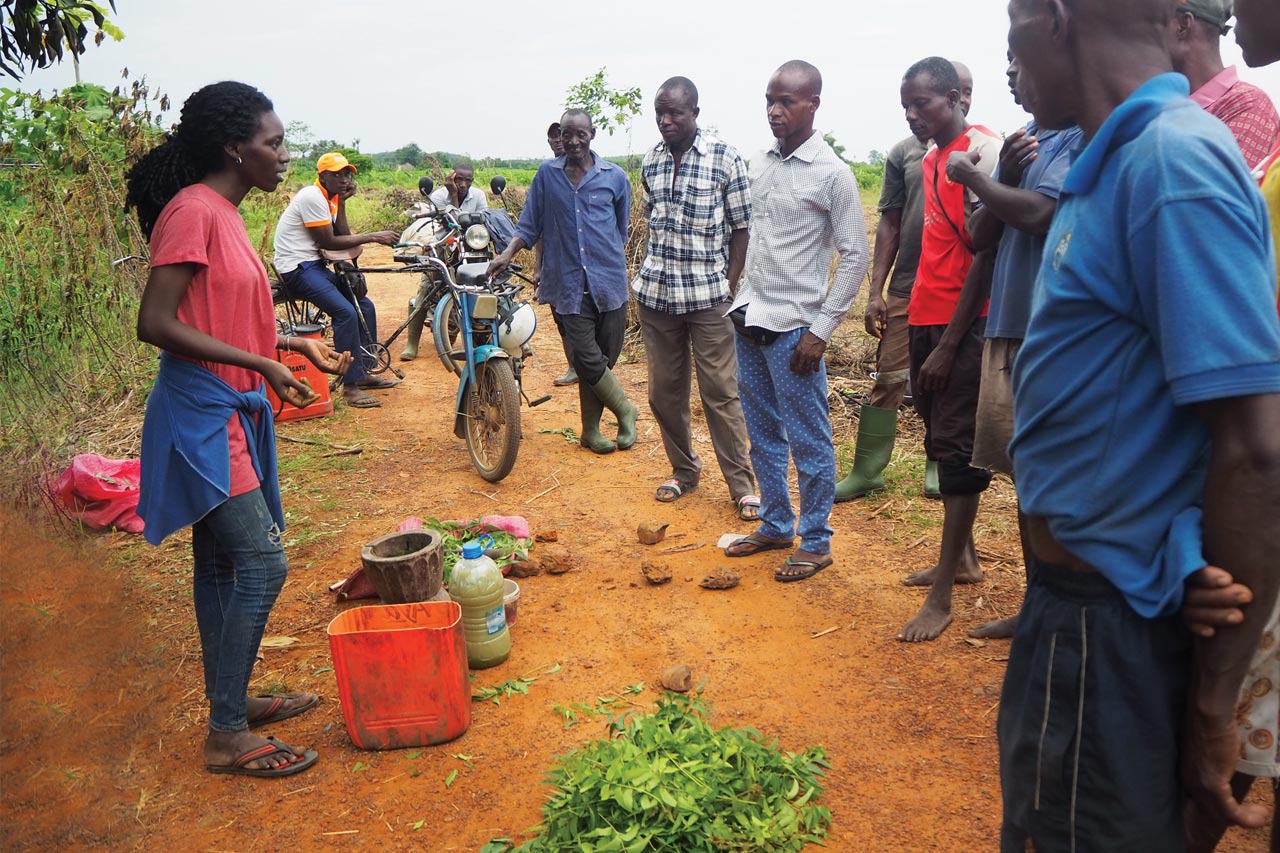-
Pays:Côte d'ivoire
-
Programme:Programme AGRITER
-
Statut:Projet en cours
CONTEXT
Family food farming on the outskirts of Abidjan, based on cassava and field vegetables, has a commercial purpose and contributes to the food security of the economic capital. However, it is under threat: increasing urbanization, declining yields, health and environmental risks related to the overuse of phytosanitary products, inadequate support mechanisms...
Cassava is one of the main staples in Côte d'Ivoire. However, artisanal or semi-industrial plants processing cassava into attiéké (fermented cassava semolina) have low techno-economic performance.
It is in this context that Agrisud operates, in partnership with the Autonomous District of Abidjan (DAA). The project is implemented in 3 villages of the DAA: Adattié, Abiaté 2 and Songon Kassemblé.
OBJECTIVES
This pilot project is part of the Agriter program, which aims at strengthening the dynamics carried by the stakeholders of the territories to promote sustainable family farming.
Its aim is to:
- Develop and conduct sustainable farming projects ont the scale of the territory, around local food attiéké sectors.
- Support farms in the agroecological transition.
- Boost the performance of plants processing cassava into attiéké.
- Develop knowledge in the territory through skills transfer, awareness-raisning and advocacy actions
RESULTS
- 3 territories assisted in their agroecological transition.
- 400 VSEs supported in the improvement of their agricultural activities (production and processing).
- 160 agri-businesses supported in improving their agricultural activities.
- 1,000 people sensitized to sustainable agriculture issues, including 500 students.

KEY INFORMATION ABOUT THE PROJECT
| Period | 3 years (January 2024 – December 2026) |
| Beneficiaries | 560 VSEs (Very Small Enterprises) |
| Budget | €832,000 |
| Project manager | Agrisud International |
| Financial partners | AFD, UE, Fonds Pierre Castel, District Autonome d’Abidjan, Fonds de dotation Compagnie Fruitière, AVSF/Fondation Carrefour |
| Operational partners | District Autonome d’Abidjan, AVSF |


